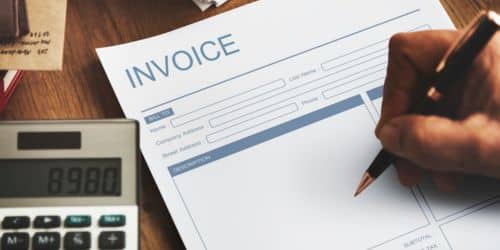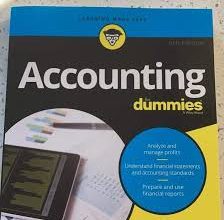Invoice factoring is a type of financing that allows businesses to sell their outstanding invoices to a third party (factoring company) in exchange for immediate cash. This can be a helpful way for businesses to improve their cash flow, especially if they have to wait long periods for their customers to pay their bills. But how do you go about this?
Don’t worry; this article will address all of your invoice factoring questions, assisting you in determining whether it is a good fit for your company.
What is Invoice Factoring?
Invoice factoring occurs when a company transfers its outstanding invoices to a factoring company in exchange for quick cash. When you submit an invoice, the firm pays you an advance (a partial payment). They will give you the remaining money after collecting payment from the customer, less a modest fee.
How Invoice Factoring Works
Although each third-party factoring firm will have its own terms and restrictions incorporated into its invoice factoring programs, the basic foundation of how all invoice factoring works will be similar. Here are the fundamental steps you anticipate:
#1. Identifying a Factor
The first stage in invoicing factoring is sending an invoice to your customer, requesting payment for the goods or services you provided. Your statement would include a payment deadline and details on how they might repay you. As soon as you’ve sent the invoice and your customer has agreed to pay, you can identify a factor and sell it to them.
Keep in mind that you can only sell invoices that are payable within 90 days with invoicing factoring. If the payment term exceeds that, your invoice may be ineligible for invoice factoring. When deciding whether to factor invoices, remember that the entire process can take up to a week, from when you begin factoring to when you receive your payments from the factor.
#2. The Factor Agreement
After you’ve chosen a factoring provider that meets your goals and budget, they’ll look into your company’s credit and transaction history, as well as the invoices you’re factoring. They may request several personal documents from you and conduct a personal credit check on you or your customers. This study aims to determine your clients’ dependability and the possibility that they will pay their invoices on time.
If you are approved after this review, you will sign a factoring agreement and begin the factoring process. The factoring agreement should include any fees, payment plan specifics, and the initial maximum cash amount that will be provided to you. That is the maximum calculated amount that can be owed at any given time. It is critical to study all terms and paperwork during this process stage.
You should consult a lawyer who specializes in small business financing and is knowledgeable about factoring to review the agreement documentation and ensure you understand all potential circumstances, such as what happens if you need to delay payment.
#3. Choosing a Factor
Once the agreement is finalized, the factor will provide you with an advance known as the advance rate. This rate is typically expressed as a percentage of your invoice value. The amount you receive is normally approximately 80% of the invoice value and is specified in your agreement with the factor. Your industry, transaction history, and business stability generally influence the rate you receive.
Because invoice factoring entails re-assigning the receiver of your client’s bill, the invoice factoring provider may send a “notice of assignment” to your impacted clients at this stage. The notice would advise them of your invoice factoring plan and clarify how to submit future payments from invoices produced by you.
#4. Payment and Collection
The factoring business will send you any remaining balances, the reverse amount, once your invoice’s deadline has passed and your client has paid the factor. The factoring company will subtract their service fee, a rebate, from the remittance to collect their service remuneration. This fee is typically a proportion of the original invoice amount and due date, which you negotiate while structuring your factoring agreement.
What to Look for When Choosing a Factoring Company
Factoring companies, like other lenders, come in many shapes and sizes. Each has its own set of strengths, weaknesses, and specialities. If you believe invoice factoring could be a smart option to help you fund your business, examine the following factors when selecting a lender:
#1. Industry specialization
Most factoring companies specialize in one or more sectors or business sizes. Find someone who understands your industry and your requirements.
#2. Low-Interest Rates
Invoice factoring might have high interest rates, so understand the prices your potential factoring company charges compared to its competitors.
#3. High Advance Rate
Factoring companies limit the amount of money they will advance borrowers based on the size of the invoice. Work with a factoring provider that allows you to access as much of your money as feasible as soon as possible.
#4. Online invoice management
A good factoring company will offer an online platform where you can log in, check the status of invoices you’ve factored in, and submit new invoices for factoring.
#5. A Few Extra Fees
Ensure you will not be caught off guard by unexpected expenditures.
Fast funding: Factoring businesses should provide you with cash within a day or two.
Uncomplicated renewal procedure: Once you’ve been approved to work with a factoring company and one of your clients has been accepted, the process for factoring subsequent invoices should be quick and uncomplicated.
Factoring Invoices for Small Businesses
Invoice factoring is an excellent technique for small businesses to be paid on slow-paying clients. It will be simple to repay borrowed funds, depending on how quickly they are received. With this additional capital, one can satisfy payroll demands, extra expenses, etc. This may be the final time this is required.
Factoring, Financing, etc. What is the Best Solution for Your Company?
For many small business owners, factoring is an appealing option because the factoring company handles collections, freeing up more time for you to operate your business. If you are having collection issues, such as clients not paying you on time, and you don’t know what else to do, factoring could be a viable answer because it places the burden on a third party who is experienced in collections.
If you just need to get paid quickly but don’t want to lose control over your customer relationships and experience, invoice financing may be a better option for you and your clients. Customer experience is more important than ever in today’s competitive business environment. Now that platforms like Fundbox make invoice financing available, many firms opt for invoice financing over invoice factoring.
Advantages of Invoice Factoring
#1. Reduces your business Overhead
Invoice factoring services may help you save money on your business expenses. While invoice factoring has fees, they may be cheaper than hiring specialist credit control staff. Invoice factoring may help boost morale in your accounts department, as hunting down payments is typically demanding.
#2. Advantageous for Tiny Firms
Because it does not demand collateral, invoice factoring benefits small and emerging enterprises and anyone struggling to qualify for bank loans.
#3. Improved and More Predictable Cash Flow
By employing invoice factoring, you can have most of your bills paid nearly immediately rather than waiting for the money to come in (sometimes after lengthy chasing on your behalf). It improves business planning and forecasting and allows you to capitalize on opportunities that would otherwise be out of reach.
#4. Quick Access to Money
When you need money quickly, invoice factoring is a fantastic choice. Invoice factoring is a quick process; the factoring company normally pays the advance to the business owner within 1-3 days. Even the basic screening procedure takes no more than 7 business days.
#5. Cheaper and Easier to Obtain than a Bank Loan
Invoice factoring is typically less expensive and easier to secure than a bank loan, making it ideal for short-term finance. It also relieves you of the burden of debt management. That might be a significant savings depending on the size of your consumer base.
#6. Improves Financial Flow and Keeps You from Going into Debt
Invoice factoring might help you avoid the debt and interest obligations of loans. The business’s cash flow increases instantly because the bills are paid in cash. Finally, invoice factoring saves the business owner money and time.
Disadvantages of Invoice Factoring
#1. Not Receiving the Whole Invoice Amount
You will always lose some of your payment when you employ invoice factoring. If you cannot part with that sum and are willing to wait for your customer’s payment, invoice factoring may not be your best option.
#2. Unsuitable for Small Scale Businesses
Invoice factoring is not appropriate for businesses with only a few key customers. Companies that prefer to spread their risk as broadly as possible. They strive to avoid sending a large number of bills to a small number of consumers.
#3. If Your Consumers are Dangerous, Your Costs will Rise
Factoring businesses try to assess the risk of late or non-payment of debt appropriately. This means they will carefully evaluate your customers. Their fees will reflect their credit risk assessment; if you or your customers are rated high risk, your fees will be high.
#4. Extra Costs if it Doesn’t Work
If your clients become poor payers, you may have to pay further disbursements. If a customer fails to pay, you may be required to reimburse the amount the factoring company has already paid you, unless you pay an additional fee for non-recourse factoring. Do not expect a factoring company to take over your bad debts for free. They, like you, are in business to make money.
#5. Customers’ Late Payments
When your clients pay late, the factoring cost soon mounts up. If any of your clients are late, invoice factoring can cause more harm than good and be more expensive than simply waiting for payment. In our case, the factoring company deducts a 4% service fee from the invoice. While the factoring cost may be acceptable for certain small firms, 4% of the invoice amount is expensive and may be too much for some business owners. Selling invoices carefully is one approach to prevent losing money. Invoices issued to consumers with an excellent payment history may be the best to sell to factoring companies.
#6. It necessitates a Significant Time Investment
Although it is sometimes possible to factor in a small number of invoices (selective or spot factoring), most factoring businesses want to take over most of your accounts receivable. They may also try to lock you into a long-term contract of two years or more. This is vital from their standpoint, but you can’t easily dip in and out of invoice factoring whenever you want. It’s a significant business choice.
What Is the Cost of Invoice Factoring
Once a factoring company agrees to deal with you, you must pay them in the form of factoring fees for their invoice services. As a result, when you sell your invoices to a factor, you only receive a fraction of the whole invoice amount. A normal factor advance is approximately 80% of the invoice amount. However, this will vary depending on your agreement and the factor. When you sign a factoring agreement, you should always learn about and negotiate the details of these costs. The fees are normally divided into the Discount Rate and the Factoring Period.
#1. Rate of Discount
The discount rate, or factor rate, is the transaction fee or the principal cost of conducting business with a factoring company. Depending on the factor and the factoring duration, it could range from two to ten per cent of the invoice. If you’re also dealing with many bills in a short period, this rate may be lower. Always inquire with your factoring provider about how their discount rate is calculated and what you can do to achieve the greatest deal possible.
For example, suppose you have $100,000 in outstanding invoices due in 30 days and decide to factor them at a 5% discount rate. Because the factor firm has kept $5000 as their fee, you would receive $95,000 as your initial advance.
#2. Period of Factoring
The Factoring Period refers to how long a factoring business enables customers to keep their bills open. This information is important to you since it will determine your total fees. Factors impose discount rates at regular intervals (usually weekly or monthly). Thus, your total cost is determined by the factoring period or the time it takes your customer to pay your invoice.
You must negotiate with the factor to establish a realistic factoring term that works for you and your clients, because, in a “recourse factoring” arrangement, the factor may begin collections from you to withdraw their payments. When calculating your expenditures, consider how long your customer will take to pay your invoice.
How Does Invoice Factoring Work?
Invoice factoring occurs when a company transfers its outstanding invoices to a factoring company in exchange for quick cash. When you submit an invoice, the firm pays you an advance (a partial payment). They will give you the remaining money after collecting payment from the customer, less a modest fee.
Is Invoice Factoring Illegal?
Invoice factoring is usually legal, but whether it’s a good idea for your organization depends on the circumstances.
Why is Invoice Factoring Risky?
Control Over Invoice Payments Is Gone
Working with a factoring company gives a third party power over some financial components of a business. This is because using a factoring company to seek and collect invoices and shortfall cash violates the privacy of both customers and business owners.
How Do You Qualify for Invoice Factoring?
- To factor invoices.
- Clients with good credit.
- Apply Now for a completed factoring application.
- A report on the ageing of accounts receivable.
- A commercial bank account.
- A tax identification number.
- A method of identifying oneself.
Do Banks Offer Invoice Factoring?
Banks may factor invoices for various reasons, primarily to fund firms needing operating capital. Funding invoices can be a way for banks to gain income from lending to businesses while avoiding the risks associated with traditional lending.
Who Pays the Factoring Company?
When a customer pays the factoring firm for an outstanding invoice, the factoring company deducts its costs and transfers the invoice’s leftover balance to the business’s bank account.
Why is Factoring so Expensive?
Numerous criteria, including the type of invoice and the degree of recourse available to the consumer, determine the factoring rate. The rate will be greater if the factoring company is non-recourse because the consumer may not pay. Time, in addition to credit risk, is an important consideration.
Conclusion
Most bills have payment terms of 30 to 90 days, which means that if you send an invoice to a customer, you won’t see the money for at least a month, if not more. Long payment periods put many small business owners in perpetual liquidity stress, making it difficult to meet basic expenses like payroll, utilities, and inventory. This stops you from investing in expansion possibilities or running day-to-day operations smoothly.
- Billtrust: Features, Review, Competitors & More
- Amazon’s $11 Billion Bet on Thursday Night Football: A Bold Move or Fool’s Errand?
- HOW TO SEND MONEY APPLE PAY: The Ultimate Guide
- ZIPBOOKS: Features, Reviews, Pricing & Alternatives
- NOTES RECEIVABLE: Definition, Format, Examples & More






